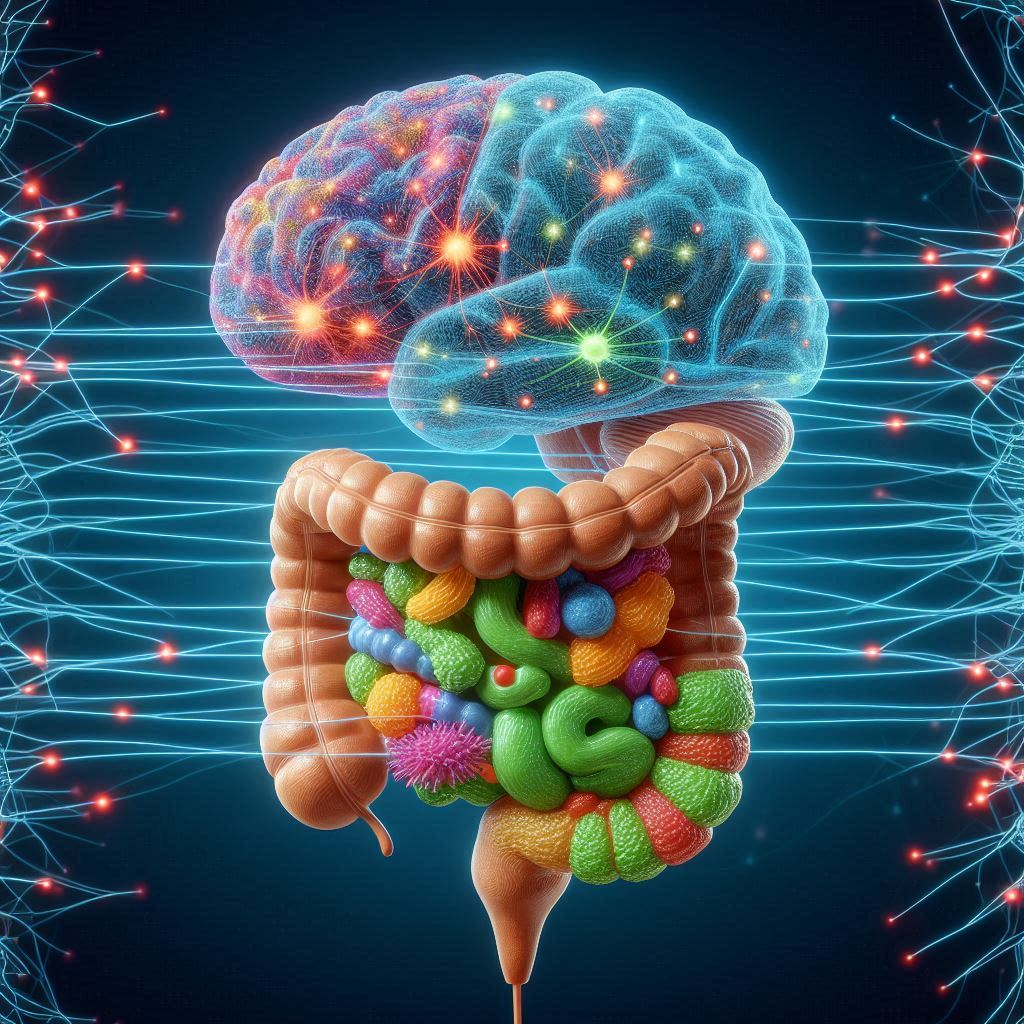The human body is a complex and interconnected system, with one of the most fascinating connections being the relationship between gut health and mental health. Often referred to as the “gut-brain axis,” this communication between the digestive system and the brain plays a vital role in regulating mood, emotions, and overall well-being. In fact, research increasingly shows that maintaining good gut health can have a significant impact on mental health, helping to improve mood and potentially even reduce symptoms of conditions like anxiety and depression.
How Gut Health Affects Mental Health
The gut-brain axis involves constant communication between the gut and the brain through various pathways, including the vagus nerve, hormones, and neurotransmitters. The gut, often called the “second brain,” contains its own network of neurons known as the enteric nervous system (ENS). These neurons produce neurotransmitters—chemical messengers that regulate mood and cognitive functions.
1. Serotonin: The Happiness Hormone
One of the most critical neurotransmitters involved in mental health is serotonin, which is responsible for regulating mood, sleep, and appetite. While serotonin is commonly associated with the brain, around 90% of it is actually produced in the gut. If your gut health is compromised, it can affect serotonin production, leading to mood imbalances. This helps explain why people with gastrointestinal disorders often experience symptoms like anxiety or depression.
2. Dopamine and GABA
Other neurotransmitters influenced by gut health include dopamine and GABA (gamma-aminobutyric acid). Dopamine is responsible for feelings of pleasure and reward, while GABA helps calm the nervous system, reducing stress and anxiety. Research suggests that certain gut bacteria can affect the production of these neurotransmitters, meaning that a healthy gut may help stabilize your mood and enhance emotional resilience.
3. Inflammation and Mental Health
Another link between gut health and mental health is inflammation. When the gut is imbalanced or “leaky” (a condition known as increased intestinal permeability), it allows harmful bacteria and toxins to enter the bloodstream. This triggers systemic inflammation, which can affect brain function and contribute to mental health disorders. Chronic inflammation has been linked to anxiety, depression, and cognitive decline.
Simple Ways to Improve Gut Health and Mental Health
Fortunately, improving gut health doesn’t require drastic measures. By making simple adjustments to your daily routine, you can support both your digestive system and your mental well-being.
1. Eat a Fiber-Rich Diet
Fiber is essential for maintaining a healthy gut microbiome (it feeds it)—the community of bacteria that resides in your digestive tract. A diverse and balanced microbiome can help regulate the production of neurotransmitters. Foods rich in fiber, such as fruits, vegetables, legumes, and whole grains, help feed beneficial gut bacteria, promoting overall gut health and indirectly supporting mental health.
2. Incorporate Fermented Foods
Fermented foods like yogurt, kefir, sauerkraut, and kimchi are excellent sources of probiotics—live bacteria that help maintain a healthy balance in the gut. Regular consumption of fermented foods can boost the diversity of your gut microbiome, which is crucial for a well-functioning gut-brain axis.
3. Limit Processed Foods
Highly processed foods and those rich in added sugars can harm gut health by promoting the growth of harmful bacteria. By reducing your intake of processed foods, you can encourage a healthier gut environment. A balanced diet rich in whole foods is one of the best ways to promote good gut and mental health.
4. Stay Hydrated
Proper hydration is essential for digestion and maintaining the mucosal lining of the intestines. Drinking enough water throughout the day helps keep the digestive system functioning smoothly, which in turn can support your mental well-being.
5. Manage Stress
Chronic stress can negatively impact both gut and mental health by disrupting the gut-brain axis. Stress management techniques such as meditation, yoga, deep breathing, and regular physical activity can help reduce the effects of stress on the gut, thereby supporting both mental clarity and emotional stability.
6. Consider Probiotics
Taking a high-quality probiotic supplement may help restore balance to the gut microbiome, especially if you’re not regularly consuming fermented foods. Probiotics can enhance gut health, which in turn may lead to improved mental health by promoting the production of beneficial neurotransmitters.
Wrap Up
The intricate connection between gut health and mental health underscores the importance of maintaining a healthy gut to support emotional and psychological well-being. By understanding how the gut influences neurotransmitter production, inflammation, and the overall communication between the digestive system and the brain, we can take proactive steps to improve both physical and mental health. Simple changes—such as eating more fiber-rich and fermented foods, staying hydrated, managing stress, and taking probiotics—can make a big difference in supporting the gut-brain axis. As research continues to reveal the profound effects of gut health on the mind, it’s clear that caring for your digestive system is one of the best ways to promote mental well-being

